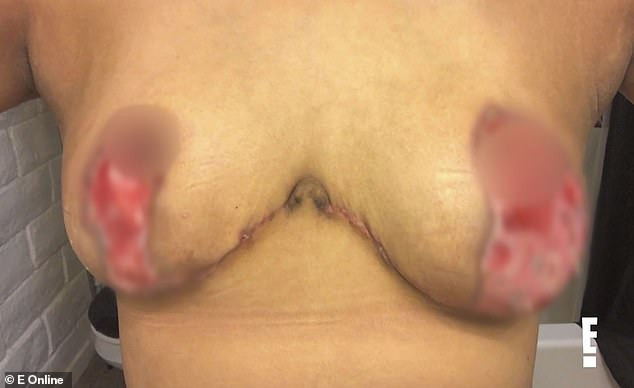
Following a botched breast reduction surgery, a woman experienced a horrifying ordeal as her breast tissues began to rot and emit a putrid odor reminiscent of decaying flesh.
A promo clip for an upcoming episode of Botched reveals the story of Esmeralda, who was left with a “hole” in each breast after her doctor spent six months removing the decaying flesh.
Dr. Terry Dubrow expressed shock at the severity of the complication, stating, “I’ve seen a lot of breast reductions, and I’ve seen a lot of complications from them, but this is the worst complication from a breast reduction I have ever seen.”
During her consultation with plastic surgeons Dr. Dubrow and Dr. Paul Nassif, Esmeralda shared that she opted for a breast reduction at 18 due to the back pain caused by her DDD breasts.

Esmeralda, accompanied by her mother and sister, recalled becoming concerned when she detected a putrid smell shortly after the surgery, expressing, “The smell was coming through my shirt. That’s when I started to panic. I feel like we know what a dead body smells like now.”
“The tissue looked like it was dying,” her mom added.

Esmeralda detailed how her doctor continuously assured her that the issue could be rectified. However, each visit resulted in deeper incisions to remove the decaying skin.
Recounting the distressing experience, she said, “For six months, I would go up to see him up to three times a week just so he could cut off the dead skin until it turned into flesh, open flesh, but it was deep.”

Dr. Dubrow questioned Esmeralda about the lack of referral to a wound care center, to which she revealed that her original doctor solely provided treatment.
Expressing his dismay at the initial doctor’s approach, Dr. Dubrow emphasized the urgency of treating tissue necrosis and loss, stating, “If you have tissue necrosis and tissue loss, and you need to treat it by surgical removal, you have to do it very aggressively and very quickly.”
